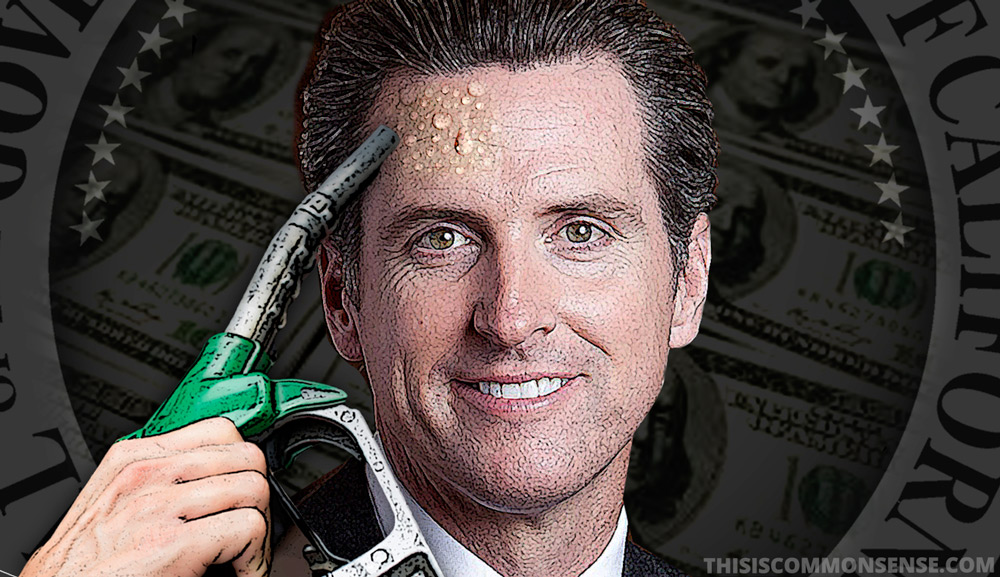California’s new top banana is playing politics the old-fashioned way: passing the buck.
Last week Governor Gavin Newsom directed the California Energy Commission (CEC) to look into the state’s higher-than-average gasoline prices.
“Independent analysis suggests that an unaccounted-for price differential exists in California’s gas prices and that this price differential may stem in part from inappropriate industry practices,” he wrote in an official letter to the CEC. “These are all important reasons for the Commission to help shed light on what’s going on in our gasoline market.”
Ah, shed light!
We are not talking about the bulb in your outbuilding.
Californians understandably grumble about having to pay higher taxes than elsewhere in the U.S. So Newsom pretends to suspect “inappropriate industry practices.” But what is inappropriate is Newsom’s directive to the CEC. As Christian Britschgi drolly informs us at Reason, Newsom, while lieutenant governor, had “supported a 2017 bill increasing the state’s gas taxes,” which looks like all we really need to know. Raise taxes, and businesses tend to increase prices rather than eat the extra cost. Higher gas prices are the result of higher taxes.
Duh.
But there’s more.
“When running for governor in 2018,” Britschgi explains, “he opposed a ballot initiative that would have repealed that same increase.”
So, is Newsom truly clueless of the obvious?
Hardly. And neither are “17 legislators who voted for the tax hike” who joined the governor in “wanting answers to this difficult headscratcher.” They are doing what pols usually do: deflect; misdirect; blame others … hoping that voters don’t pay close enough attention, or remember recent history. And busy people often do not.
Finding a bogeyman helps, too.
This is Common Sense. I’m Paul Jacob.

—
See all recent commentary
(simplified and organized)










